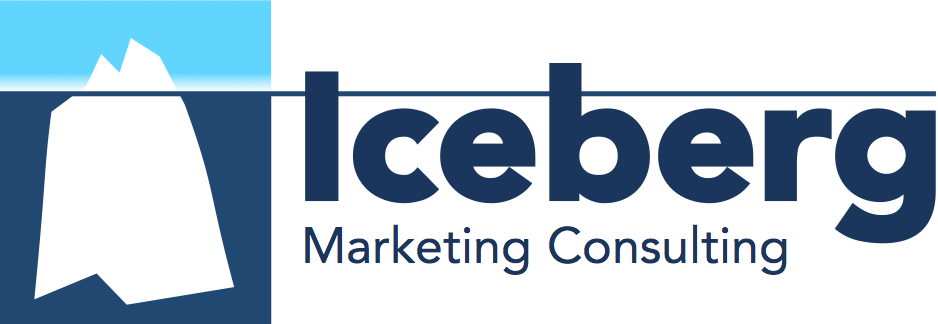
The troubling ethics of digital advertising
As the giant social media companies face pressure to increase transparency and eliminate blatantly misleading content, advertisers, too, face an important choice. Is it ethical for advertisers to continue their investment in highly effective digital marketing platforms, if doing so means supporting an ecosystem that is damaging our social fabric? The choice is creating an ethical dilemma for digital advertisers.
What is flawed about the current digital media environment?
Put simply, the big digital media platforms have inverted the way people learn about the world beyond their own back yards.
Throughout history, humans have sought out information from beyond what they see and hear directly. We humans are curious creatures. Initially, distant information would have come in the form of talking with others. Seekers of information had the ability to seek or not seek information, and the ability to ignore or take information to heed. Trust mattered. The concept of objective truth mattered.
As the centuries went by, the general result of new communication technologies was to allow people to discover information from ever larger circles. As before, much of the new volume of information was accurate, and much of it was not. Similarly, while much of the information was distributed in order to enlighten, much was distributed with nefarious motives. In any case, it was up to the consumer to seek and accept the information per their own will. The key is that we were gaining access to an ever-increasing pool of information and points of view.
Social media is making our world smaller, not larger
On the other hand, our smart devices, social media, and online social commentary have made the river flow backwards. Today, the type and tone of information we receive is continually narrowing rather than widening.
Our devices and the big social media platforms are designed to enable advertisers to target ads and content on a personalized level. We are all tracked whenever we use our devices at home or at work. On our smartphones and on our smart TVs. Alexa. Siri. The technology is there to help us, but it also tracks us and sells our anonymized personal information to advertisers. Sure, one can use ad blockers and tighten down security settings, but this takes work. Most people just don’t make the effort. And the fact is most just really don’t know how to turn it all off.
Now, to a marketer, this laserlike targetability is thrilling. Digital marketing tools allow us to be more effective than ever before with our tactical communication. However, the way the targeting works has a less thrilling side. The targeting algorithms box us into categories. When we engage with the content that is served to us, and when we follow or respond to others, the categories that define us become slightly narrower than before.
Our pigeonholes are getting deeper
We can all review how Facebook categorizes our interests, but doing so is complicated. In fact, a Pew Research study from 2019 found that a majority of Facebook users weren’t even aware that this type of interest classification was being made available to advertisers.
But it’s not bad enough that we are consuming an ever-greater percentage of information that advertisers specifically are aiming at us. Those targeting mechanisms are wide open to being taken advantage of by individuals or organizations for any number of motives (commercial, political, etc.). Unprincipled “advertisers” can, more easily than ever, lie to us while presenting their lies quite convincingly as facts.
Billions of fake Facebook accounts removed in 2019
And not only can they lie, they are lying all day long. According to Forbes, “Facebook revealed that it ‘disabled’ 5.4 billion fake accounts between January and September 2019. This represents a 63.6% increase over the 3.3 billion fake accounts it removed in all of 2018.” That’s right, billions.
And this is not a partisan discussion. It’s very easy to put the politics aside once you realize that we are all being lied to. Not by everyone. Not all the time. There is plenty of good information out there still. But it’s becoming more difficult to tell outright lies from truths no matter what your political or personal beliefs are.
The dynamics are subtle, but drop by drop, we are each being drowned in our own personalized information isolation tanks.
Should I stay or should I go now?
And this is where the ethical dilemma gets personal. According to a report from Edison Research, U.S. users are leaving Facebook by the millions. Many prefer to use Instagram or LinkedIn these days because they feel those two platforms bring “less drama.” But as Instagram is owned by Facebook, and as more of us consider reducing or eliminating our personal reliance on the digital-social media environment, it begs a question:
“If I feel compelled, on principle, to close my personal social media accounts, should I continue to use their ad platforms for my business?”
It’s a tough choice and we will all have to consider it for ourselves. But the ethics of digital advertising are a bit messy. Hopefully, time will provide an opportunity for us to improve the ecosystem before long—eventually allowing users and marketers to benefit more equitably.
How can I help you?
If you’d like to learn more about how to improve your marketing, Iceberg can help. See my page on marketing coaching or my article on getting a deeper view into your marketing efforts. Or feel free to contact me directly. I’m always happy to help.
